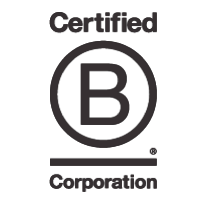
Collagen for Optimal Gut Health; what's the link?

Focusing on your ‘gut health’ may seem to have been trending for a few years in the health and wellness world, yet far from just another passing fad, a deep understanding of the importance of our gut has a legacy of thousands of years.
Various ancient medicine practices from different cultures all around the world have recognised the importance of gut health in maintaining overall well-being. Ayurveda, one of the oldest holistic healing systems, places a strong emphasis on digestion and gut health. In Ayurvedic philosophy, the digestive fire, or "agni," is considered central to maintaining health. In Traditional Chinese Medicine herbs, acupuncture, and dietary recommendations are commonly used to address digestive imbalances and promote gut health. Even the famous quote "All disease begins in the gut" is attributed to Ancient Greek physician Hippocrates.
Today, modern science and innovative practices are increasingly validating the wisdom of these traditional approaches. Importantly, all the systems in your body are interconnected with the gut playing a key role. The more efficient your gut is working, the more nutrients you can absorb and assimilate to create health and power your body. Thanks to this interconnectedness, focusing on your gut health can bring multiple benefits and will likely help in other areas too, from skin to energy. And it's not just a digestive powerhouse; your gut also houses a complex ecosystem of trillions of microbes, influencing everything from our immune system to our mood and mental health.
Amongst other important nutrients and lifestyle factors that affect our gut health is collagen. Let’s take a deep dive into this clever protein's ability to nourish and support the gut.

First a Quick Recap; collagen, the most abundant protein in the body, gives flexible and resilient structure to various body parts such as skin, bones, tendons, blood vessels and yes, the gut and stomach. Collagen is a protein which consists of specific amino acids (building blocks) some of which are also significant key players in supporting a robust and optimal functioning gut.
An Untapped Resource
Collagen may not be the first thing to spring to mind when you are thinking of supporting your gut health. In fact, in a recent clinical trial (1), only 30% of those surveyed knew that collagen had gut health relevance and could in fact aid in digestion.
Even though the awareness was low amongst the group, after regularly supplementing 10g of collagen peptides, 93% of participants in this particular trial found improvements in digestion, including bloating and abdominal comfort in just eight weeks.
What makes researching supplementing collagen and the impact on gut health a little tricky is navigating how to conduct the studies. Unlike other areas such as skin, joint, bone and even heart health, the scientific research methods used for investigating the benefits of collagen are a little more complex due to the physical internal location of the gut within the body. The measurement factors like gut lining and microbial activity present unique challenges and so much of the current research is ‘in vitro’ or using animal models.
Despite this, collagen (in its different forms) has been used throughout history to aid in healing the gut.
Bone Broth Beginnings
A nourishing food most commonly touted for gut healing (thanks hugely to the collagen it contains) is bone broth. As molecules go, collagen is pretty huge. Because of the long fibrous chain of amino acids, collagen is often too big for us to digest in its raw state - so we need to break it down first. During the cooking process, you render down the protein molecule so you can digest and absorb collagen. When using collagen peptides in supplement form, the collagen is broken down using hydrolysis into even smaller molecules at the exact weight needed for you to absorb them easily.
Whilst ancient remedies are of course something we draw upon for inspiration here at Ancient + Brave, we also love this touch of innovation - a way to make these time-tested remedies a little more accessible in our modern lives. Bone broth does contain some other lovely nutrients and sometimes herbs which may be supportive for gut health. However, as a nutritionist, I have seen a few issues when recommending bone broth to clients; taste, time and effectiveness.
Taste is highly personal, and whilst some people love their morning cup of bone broth, others aren’t keen enough to make it a regular part of their routine. We know from studies it is the consistent regular use of collagen which produces the best results therefore if not taken every day one cannot truly reap the benefits. Bone broth, unsurprisingly, also takes a good amount of time to make. 12 hours in fact. With many of us being so time-poor in our modern day living, making batches of bone broth may be a difficult addition to an already busy life. Finally, it is difficult to know how much collagen you are getting with each cup of bone broth and the amount of collagen present may not be enough for some people, with recent studies suggesting that collagen in supplement form is more effective for promoting collagen synthesis, due to higher concentrations of the amino acids (2).
Gut Lining Integrity
In the world of gut health, supporting the important microbes which live within is often the key focus for people trying to optimise their digestion. However it is important to also look at what houses these trillions of microbes; your gut lining.
Think of your gut lining as an interface from the outside world to your inner body. It is vital that you have a strong, resilient gut barrier which prevents any unwanted substances from permeating into the bloodstream and triggering an immune response which can appear as allergies, intolerances and inflammation, often referred to as ‘leaky gut’.
Reinforcing this natural barrier by utilising the amino acids present in collagen, especially glycine and proline, can not only aid in addressing gut-related issues but also contribute to supporting a healthy immune system, a significant portion of which resides in the gut (3)

Miracle Microbes
Science around microbes has quite literally exploded in nutritional research over the last decade, and we’re still only just scratching the surface. What we do know is that a) we are more microbe than human and b) if we look after them, they’ll look after us. There are many things which will affect our gut microbiome day by day, hour by hour. Fibre, fermented foods, probiotics, prebiotics, sugar intake, fasting windows and stress levels all have a part to play in whether these microbes are balanced and therefore beneficial (or not) for our health.
In terms of collagen, a recent 2023 study (4) highlighted the potential of using collagen peptides as prebiotics by linking them to positive changes in the gut microbiome. Another animal study has looked at the potential effects of collagen peptides on the gut microbiota, showing a reduction in some pro-inflammatory cells called cytokines which are known to contribute to gut imbalances or ‘dysbiosis’. Could adding collagen peptides to our diet also support our microbiome? Yet another exciting new area of research to watch out for.
Taming The Flames
Inflammation is often a huge issue at the root for those with gut related problems. Using anti-inflammatory foods and reducing other foods and lifestyle factors which may be exacerbating this is key to taming inflammation. A little known benefit of collagen peptides which is now being explored is an anti-inflammatory action. Although a new area of research, collagen may in fact also play a part in reducing inflammation, often associated with poor gut health. Watch this space.

A Word of Caution
Whilst for most people collagen is an incredible go-to for gut support, a small subset of individuals with specific gut conditions may need to exercise caution. Those dealing with suspected candida overgrowth or yeast-related issues in the gut may need to prioritise rebalancing the gut microbiota before incorporating collagen into their gut-supporting routine.
The oxalate content in collagen, coupled with the oxalate precursors produced by candida, has the potential to lead to an unhelpful build up of oxalates in the body. It's crucial to note that foods containing high amounts of oxalates, such as spinach, berries, sweet potatoes as well as collagen are often healthy choices and typically pose no issue unless there is a specific imbalance, such as candida overgrowth. Candida growth is ordinarily kept in check by the immune system and a well-balanced gut microflora. Therefore to address this particular health issue it is extremely important to include a wholesome, diverse and healthy diet to promote intestinal immunity. This includes reducing the intake of foods high in sugars and simple starches (e.g., white flour processed foods), high-oxalate foods, and fermented foods (which are generally beneficial for gut health). This is only a short term diet however, with the view of reintroducing a full variety of foods and nutrients once the candida is back in check. Additionally, managing stress, ensuring adequate sleep, and attending to other factors supporting the immune system are vital components of a comprehensive approach to gut health in these circumstances.
In Summary
Collagen confidently takes its place among gut-supportive nutrients, ingredients, and lifestyle factors upon the ultimate list of allies promoting optimal gut health. In synergy with a varied and balanced diet, collagen contributes to the overall well-being of the gastrointestinal system, supporting its structural integrity and functioning.
- https://www.ncbi.nlm.nih.gov/pmc/articles/PMC9198822/
- https://pubmed.ncbi.nlm.nih.gov/29893587/
- https://pubmed.ncbi.nlm.nih.gov/28174772/
- https://www.ncbi.nlm.nih.gov/pmc/articles/PMC10255498/#:~:text=These%20results%20indicate%20that%20collagen,ratio%20of%20the%20intestinal%20microbes.






